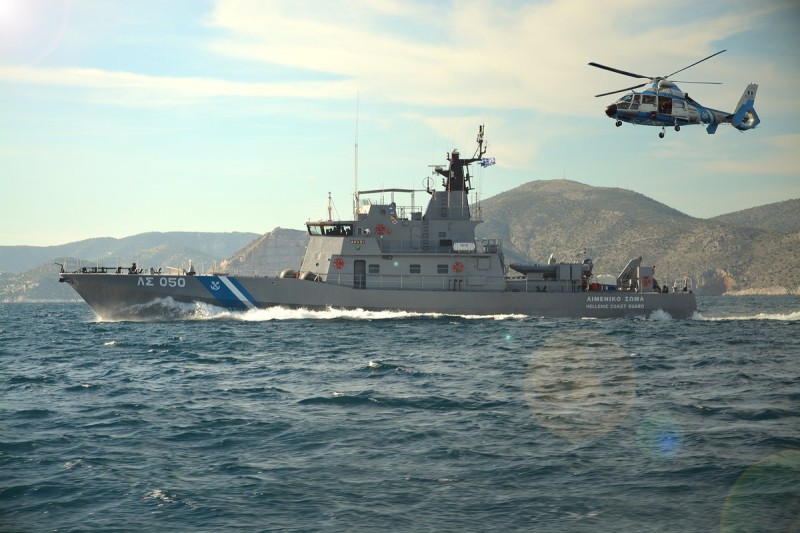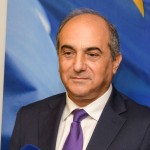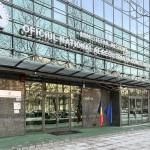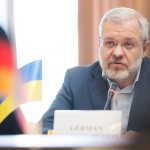Pakistan's Federal Investigation Agency (FIA) has been tasked with handling the investigations and probing one of the deadliest migrant tragedies in recent years.
Authorities have filed 71 cases against the 29 detained suspects, according to Abdul Ghafoor, the spokesperson of FIA, who spoke to OCCRP.
More than 700 people had crammed onto the 30-meter-long fishing boat that sank two weeks ago about 45 miles from Greece's southern coastal town of Pylos in the Ionian Sea. The Mediterranean Sea is the main human trafficking route that brings young migrants attempting to flee unemployment and poverty in Asia, the Middle East, and Africa to Europe.
At least 350 Pakistanis were on board the overloaded vessel, and 281 families had contacted the government to seek help and information, said Pakistan Interior Minister Rana Sanaullah on Friday.
Most of the unemployed youth in Pakistan seek shortcut ways to cross into Europe in search of a better life. Many are uneducated and totally unaware of the concept of "human trafficking."
Traffickers and their middlemen usually prey on the poor and misuse the persistent instability in the country. They roam the towns and villages and promise young people a bright future in Europe in exchange for a lump sum of US$7,000 to $14,000.
Among the 350 Pakistanis on board was Akash Gulzar, from the Azad Kashmir Kotli district. The 21-year-old unemployed young man decided to pay traffickers to flee cash-strapped Pakistan, which is currently facing soaring inflation, dwindling foreign reserves, and a grave economic crisis.
According to his mother, Naseem Begum, who spoke to him on the phone minutes before he got into that overloaded vessel, he dreamed about a decent life in Europe. The family cobbled up $8,000 to give to a trafficking agent to make Akash's dream come true, she told OCCRP.
Now, Begum has had her DNA taken at a local hospital in the hope of identifying his body if it's ever found.
Punjab and Azad Kashmir are hotspot areas for trafficking "agents." Historically, these two regions have always been a springboard for migrants. Young people from there have increasingly been persuaded to make such dangerous voyages to escape dire economic conditions.
Several of the young men who died in the incident were lured in an organized manner by local middlemen with their agents in European countries taking huge amounts.
One family, under the condition of anonymity, told OCCRP that they dealt with several agents and, in the end, paid "money to their main guy, Talat Kiani, who is living in Italy and has not been arrested. He had sent dozens of young people to Italy."
Osama Malik, a senior Pakistani jurist whose area of expertise is in the field of asylum and immigration policies and laws, told OCCRP that there are multiple reasons why so many Pakistanis choose to migrate through such precarious means.
"While upper-class Pakistanis have the option of moving abroad through investment-based residency schemes and the upper-middle class has the option of applying to foreign universities, the lack of legal means to move abroad for a certain (underprivileged) class of Pakistanis compels them to look for illegal routes to Europe, which include sea routes as well as equally treacherous land routes."
The migrant detections by Frontex data this year until May show that there were 4,971 Pakistanis detected on the central Mediterranean route, a record number in a single year.
At the end of last year, Pakistan acceded to the Additional Protocol to Prevent, Suppress and Punish Trafficking in Persons, Especially Women and Children, supplementing the United Nations Convention against Transnational Organized Crime.
The Pakistani legislature also passed the 2018 Prevention of Trafficking in Persons Act (PTPA).
However, the U.S. State Department's 2022 Trafficking in Persons Report states that there have been barely any prosecutions of international migrant traffickers under this act.
"There is also the matter of different departments within the federal and provincial governments having overlapping jurisdiction in such matters, leading to confusion and friction between the law enforcement agencies," added Malik.
Pakistan is one of the highest exporters of labor force and among the countries with the highest remittances sent home by that labor force. Those payments keep the country afloat. According to official data, nearly 830,000 people are registered as overseas workers in 2022, the highest number recorded since 2016.
"The few individuals who are, on rare occasions, arrested and brought to courts are generally small fish, and the real leaders of the human trafficking mafia are not investigated," said Malik.
"These human trafficking cartels are known to have connections with one of the prominent political dynasties in Pakistan, and the cartels also receive considerable support from corrupt officials within the country's bureaucracy and military," he explained.



